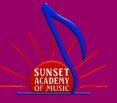A couple of interesting events coming up in Redwood City:
- Unbound: new paintings and mixed media on the nature of history, memory, and the experience of reading, by Barbara Kirst & David M. Baltzer - July 5th - Aug. 6th -
I missed the reception but will make sure to catch the exhibit next week.
- The Poetic Image - All-Gallery Anniversary Show Aug 9 - Sept. 10, reception Aug. 13 4-7pm. My homies the Not Yet Dead Poets Society will be there! Poetry readings 4-6pm, Open Mike 6-7pm.
Thursday, July 27, 2006
Main Gallery, RWC
Posted by
Liz
at
5:43 PM
4
comments
![]()
![]()
Monday, July 17, 2006
Blogday, Aug. 31 - at my house!
Hey y'all. As if BlogHer and Woolfcamp weren't enough conferences! I thought I'd throw a small house party to encourage participation in BlogDay.
Here's the party details, including a map, on upcoming.org. You can get here easily from Caltrain and there's plenty of parking on the street.
The point of Blogday is to blog internationally. I've been doing this on Blogher for blogs in Spanish. For Blogday I'll pick a language I don't know, and try to search on Technorati and other services, using automatic translators! So, join me and we'll all flounder around. Or pick a language you do know -- or link to photoblogs, art blogs, music blogs, podcasts, or videoblogs.
The idea is just to look outside of your own culture, language, country, ethnicity, class, or all of those qualities -- and pay attention -- to link to at least 5 bloggers. I think it would be a good idea to comment on the blogs we come across in the process.
Anyway, this could be super fun to do in a group! My office, living room, kitchen, and yard are all at your disposal. Afterwards we could all walk over to Amelia's for some Salvadorean food and a beer!
Posted by
Liz
at
5:39 PM
1 comments
![]()
![]()
Gearing up for BlogHer: online meetup
Chadie of Workers Dojo is
coming to BlogHer all the way from Sweden, where she's helping to organize a Scandinavian BlogHer conference. She writes about trade unions, martial arts, working class life, art, literature, and life as a mom of teenagers. I noticed that she blogs about some subjects in English, some in Swedish, and some in both languages. She also has a photoblog - with birds in the snow, snowmen, famous people, cats, graffiti... cows in the snow... You get the idea, I can't stop looking at all those pictures of snow! It's like an alien planet.
A few months ago on her blog, Chadie posted the idea of having a Swedish BlogHer meeting, and got an overwhelming response from other Scandinavian women bloggers. Like magic, a conference is born...
And we have a lot of ideas about what to put on the schedule, about writers who blogs, about how to handle Troll on the net and disgusting comments, a workshop for newbies and a workshop about podcasting and a workshop for videoblogging.
We have of course already started an email-discussion-list for all involved organisers.
That's so amazing! I find on reading Chadie's blogs that we have a similar approach to seeing beauty in ordinary daily life. I admire her activism - her job is working in web communications for the Swedish Trade Union Confederation.
Posted by
Liz
at
10:35 AM
0
comments
![]()
![]()
Labels: blogging
Sunday, July 02, 2006
the instability of audience
This bit about Langston Hughes recuperating from illness and under bad financial pressure in Carmel made me laugh on many levels:
Perhaps the best poem is "Big Sur," the most modest in size: "Great lonely hills,/ Great mountains, / Mighty touchstones of song." He appears to have gauged his audience in Carmel -- genteel, overwhelmingly white, synthetically rustic -- and, like a threadbare professional wooing a monied clientele, elastically adjusted his standards. Perhaps the best that might be said about such work is that it reflects the peculiar pressures facing him as a democratic black poet seeking, paradoxically, the widest audience. In dividing his poems into groups and sending them in various directions, he showed himself aware of the instability of his audience. Rather than lapse into silence, Hughes had committed himself to adapting his voice so that its message might be heard everywhere.
- I like "mighty touchstones of song" but it also makes me snicker.
- "synthetically rustic" is so exactly right! That describes about 75% of the white upper class poets I know (including myself). I remember being about 19 and waking up to the fact that most of my daily experience did not involve "Nature" and that I had to wrench my mind out of looking around me with a poet's eye that was narrowed to a tunnel vision which made most of the world fall off the map. I see other poets overcorrect this by writing about cigarette butts in the gutter on purpose for a good long while before they figure out how to mix it up and control their own gaze.
- power dynamics, money, Hughes' intense idealism and social consciousness in tension with needing to make a living. The bio's author has a point here. And yet, there he was, a poet, sick as can be, depressed from sulfa drugs, hanging out for months in Big Sur. Duh he's going to write some mild and quiet nature poetry. It seems a little unfair to expect anything else out of him - maybe a few poems about gonorrhea and mortality.
- Dividing your "self" as a writer and having different writerly personalities in different circumstances or for different audiences. The bio is trying to get out of the binary trap of either defending Hughes or hissing, "Sellout!" I like the phrasing of this sentence and the idea that it's not about markets, it's about audience instability. If you write one kind of book, for a definite demographic and you know who you're writing for, or to. If you write a lot of different things -- not as stabs in the dark to see what catches on and makes you a living, but because that's how you think and what you want to do -- then your identity as a writer depends on reflections from so many different sources, an unstable mirror, a fluid mirror. Rampersand is correct in describing this as a problem that in many cases functions to silence authors like Hughes, "Rather than lapse into silence...." In other words, not hitting a stable, large audience is not failure, and yet think of the pressure on Hughes to focus or shut up.
I'm thinking of last year when, after the BlogHer conference, I split up my blogging into different areas. That has allowed me to push my thoughts further and reach different people. I thought of it as an attempt to impose structure and discipline and be aware of who I was writing to/for. That has only partially worked and I keep mixing things up. I got my computers in my poetry blog and my restaurant reviews in my mommyblog, and then the core "Me" blog which feels like the most unstable and uncertain, and which I don't want to treat as a dumping ground for everything else. Possibly I took the wrong approach, and should instead have been doing better tagging and categorizing on my main blog?
People complain to me they can't keep up with what I'm writing. I'm hugely flattered that anyone would care to try. The problem for me is that I can't keep up with it myself. Instead of feeling organized, I sometimes feel over-fragmented. And yet I found that separating out into different blogs made me *write different stuff*, and I'm cool with that - it was interesting to explore. Did it make my writing better or worse? I don't know! (And I don't mean "sloppier or more or less conventionally literary - I think I mean "interesting as a blog".)
Perhaps I should have kept everything together. But then it crosses my mind, "No, what I *should* do is separate the computers from the poetry so that poets don't have to read about Bloggercon..." Then I dismiss that thought! No way! The whole point is to mix up some ideas and get other people a little bit jolted out of their boxes. That is where I really identify with Hughes, a very cool border-crosser and introducer. It's beautiful how he had his feet in different worlds and didn't make himself choose one place to speak from.
Accusations of selling out, inauthenticity, not working hard enough, imperfection, incomplete vision, Hughes faced all that and found it very hard. It's not like I don't have criticisms of his translations of Mistral or his positioning of her, but I would never ignore the wonderfully hard work and Hughes' intent of introducing a great Latin American poet to English speakers. When his critics called him lazy and said he should have tried harder on the translations, or gotten help, or left out Mistral's most important poems, and that he didn't know enough about her work or Latin American poetry in general or translation in general and so should not have attempted the project, he responded by saying that his effort was meant to get other people interested - and that more and better and more comprehensive translations of Mistral were his goal! In other words, you have to start somewhere. "So fine a poet as she was deserves many translations."
It's inherently fucking evil to insist that before you are permitted to speak, you have to know everything and be an expert. It assumes that it's possible to know everything about a subject, claiming objectivity for a privileged few, and it silences the majority of the human race.
Posted by
Liz
at
8:44 AM
3
comments
![]()
![]()
Labels: Langston Hughes, poetry
Saturday, July 01, 2006
lenses and filters
I like having glasses (rather than getting eye surgery to correct my vision) because it is a constant reminder that my reality (as judged by what I see) can change easily and abruptly. Well, I suppose that being able to open and close one's eyes could serve as the same reminder. But my vision of a face can be blurry if I peek over my glasses - so blurry that I realize much of my recognition of a person is not in their face but is in their posture and movement.
How does this relate to books, writing, poetics? Can we adopt different visions of a text, and think, "With these glasses on, the book or poem reads this way. Without them, it's another way." Yes. The trick would be articulating what kinds of lenses we're using at particular moments.
Another trick: this blog is a filter or a lens exposed to public view. I was thinking all this quite clearly while standing on the porch last night, but it's hard to kick the conversation up to this level in person while it's happening - it could potentially bore people or be a monologue hard to absorb. So it becomes less socially offensive on paper or blog. It gets to be a snapshot of a moving thought just like the snapshot of the moving fire makes a beautiful pattern not visible in the moment as we experience moments linearly. Possibly I've just had a dumb epiphany about the wonders of the paragraph.
Posted by
Liz
at
9:26 AM
0
comments
![]()
![]()
Labels: poetics







